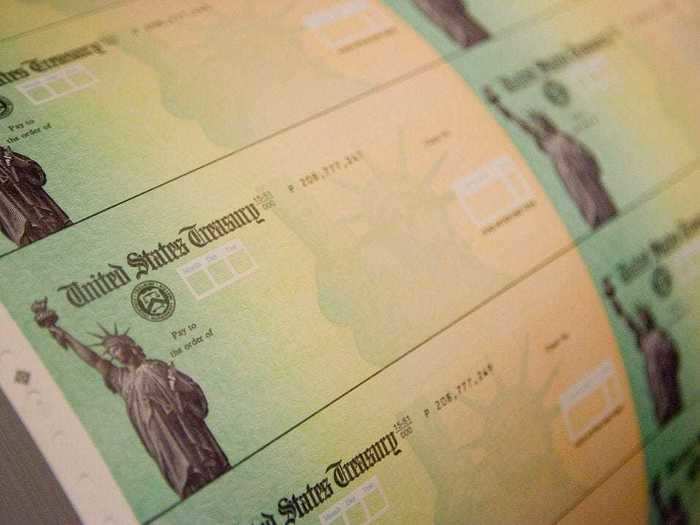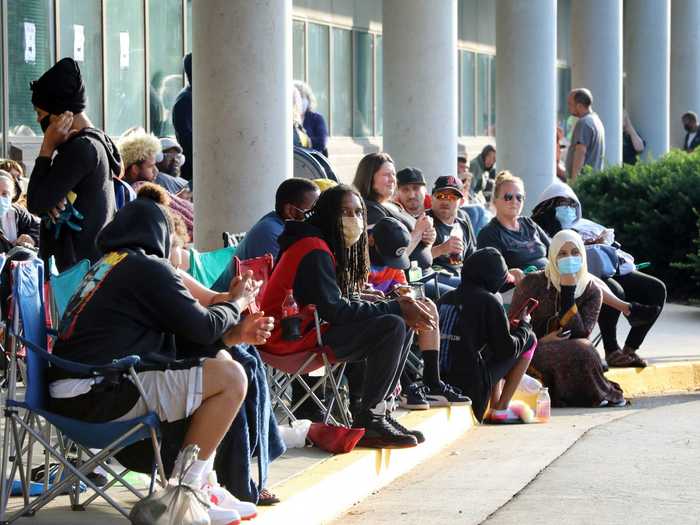President Joe Biden waves after being sworn in during his inauguration on the West Front of the U.S. Capitol on January 20, 2021 in Washington, DC.Jonathan Ernst/Getty Images
- Biden is pushing a $1.9 trillion stimulus plan that will form the basis of the new administration's negotiations with Congress.
- The Biden White House is attempting to move swiftly to address the confluence of economic, health, and political crises.
- Some measures that could add cash to people's wallets include new stimulus checks, enhanced unemployment aid, and a $15 minimum wage.
President-elect Joe Biden is inheriting a string of economic, political, and health crises that will test his administration early on.
Biden has said he intends to pursue an ambitious legislative agenda on the economy and infrastructure among other areas during his first year in office. Last week, he rolled out a $1.9 trillion stimulus plan that will form the basis for negotiations with Republicans and Democrats in Congress.
The rescue package is aimed at providing economic relief for individuals, small businesses as well as state and local governments.
Detailed below are four measures in the stimulus proposal that could put extra cash in your wallet.
$1,400 stimulus checks
Jeff Fusco/Stringer
$400 federal unemployment benefits through September
John Sommers II/Getty Images
The Biden proposal includes a provision for a $400 federal supplement to state unemployment checks for several more months.
An earlier pandemic aid package approved by Congress and former President Donald Trump included a $300 federal benefit until March 14.
Other unemployment programs for freelancers (Pandemic Unemployment Assistance) and people who exhausted their state benefits (Pandemic Emergency Unemployment Compensation) were extended until mid-March as well.
People drawing benefits from either PUA or PEUC who may be entitled to additional weeks can continue receiving payouts until April 5.
Increased child tax credits
Maskot/Getty Images
The Biden proposal also includes a measure to bolster child tax credits and make them fully refundable for a year, meaning people could receive them regardless of what they owe in taxes.
- $3,000 for each child 17 and under (from current level of $2,000)
- $3,600 for kids under age 6
Parents could receive the from the federal government after they file their taxes, though it could also be structured as a monthly payment.
Currently, the credit is capped at $1,400 for people who don't owe at least that amount on their tax bill.
During her confirmation hearing on Tuesday, Janet Yellen, Biden's pick for treasury secretary, told lawmakers on the Senate Finance Committee she would "certainly explore with the IRS" whether it was possible to deliver the cash monthly.
Read more: 'Extremes are becoming ever more extreme': A Wall Street strategist who sounded the alarm before last year's 35% crash showcases the evidence that a similar meltdown is looming
$15 minimum wage
Hinterhaus Productions/ Getty Images
The Biden plan also includes a provision to more than double the federal minimum wage to $15 an hour. Congress hasn't raised it from $7.25 in over a decade. But a timeline remains unclear.
Republicans staunchly oppose it, warning of job losses at a moment many small businesses are filing for bankruptcy and laying off workers because of the pandemic.
The Congressional Budget Office, a nonpartisan government agency, forecasted that 27 million workers would experience a pay boost with the measure. They also projected 1.3 million employees would be lifted out of poverty and an equal number of jobs would be lost.
In 2019, the Democratic-led House approved a plan to gradually lift the federal minimum wage to $15 an hour by 2025.
A growing body of research indicates that some state and city-wage increases in recent years hasn't set back the ability of employers to hire more workers. Evidence of job losses has not been consistent.
Yellen, a former Federal Reserve chair, said in her hearing that job losses were generally "very minimal" in states that raised worker pay.




